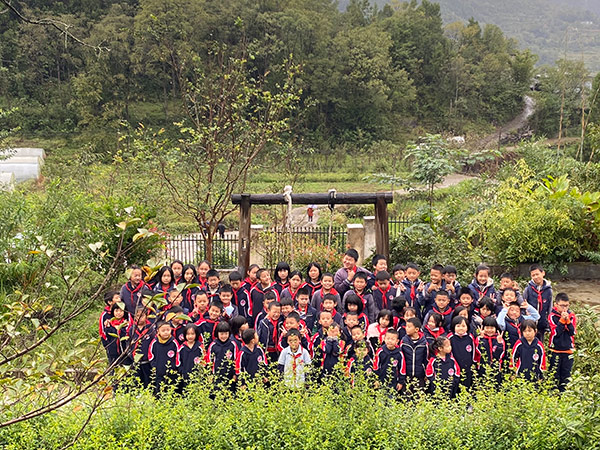

Feng, who volunteered to lead the way and translate the dialects when Tianzige visited potential recipients, was impressed by the organization repeatedly modifying the questionnaire and doing meticulous background research-from family conditions, personal willingness to learning potential-while showing respect to the students and protecting their privacy.
Feng himself was inspired and empathetic. He registered a local volunteer association in 2014 to normalize his charity activities that often involved visits and background research for other NGOs.
However, among the more than 1,700 underprivileged high school students sponsored by Tianzige from 2010-17, less than 10 percent made their way to college, and even those who did had difficulty adapting to a career and life in the city, according to Xiao. Despite this, they still lost their attachment to the countryside.
Xiao then realized that the education rural students receive barely has any connection with their life. The textbooks, learning methods, selective systems and even the goal itself-striving for further education and a promising career-are all city-oriented.
It resulted in a lack of motivation for both the teachers and students, alike. Although Tianzige had been sending volunteer teachers to remote schools, improvement was limited.
"Rural education should have its roots in the soil instead of simply being transplanted from the city. The way out of the cycle is to create an education exclusively belonging to the countryside," Xiao says.
In December 2016, Tianzige signed an agreement with Zheng'an county's education bureau and settled in the primary school. The bureau provides funds while Tianzige takes charge of the school's operation and sets the curriculum.
The teaching methods it applies are like those found in top urban schools, but are still rare in rural education, and it has managed to dig out abundant local resources for education.
When Tianzige took over, the school had around 70 students, with two-thirds of them being "left-behind" children and about one-third coming from divorced families. The school has a bathroom with hot water, three daily meals and a reading room to make them feel at home and helps students develop good personal hygiene habits.